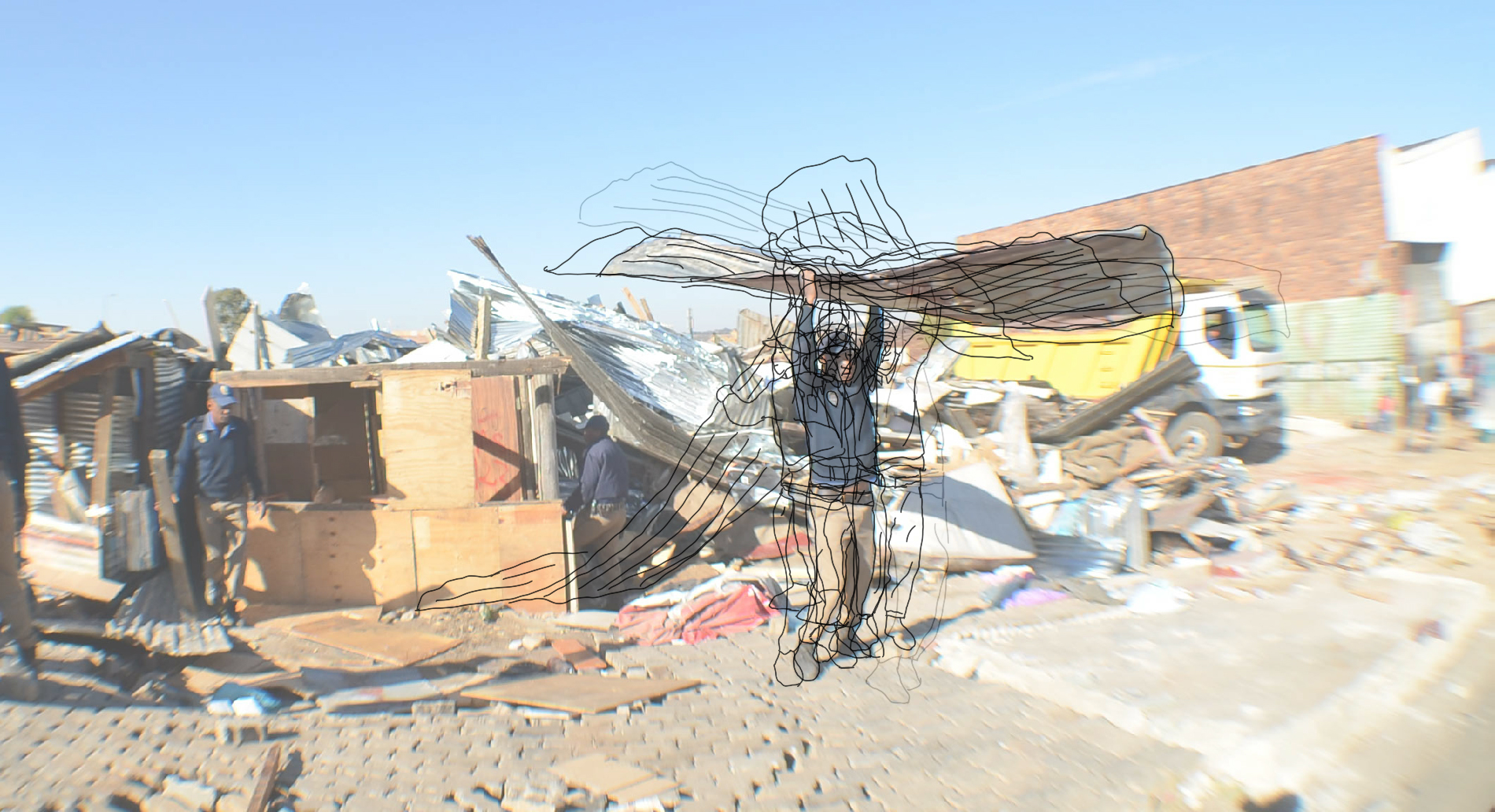16 January 2024
Lightning Talks I
10.30 AM-12.30 PM / 4.30-6.30 PM CET
Respondent: Cem Kayatekin, IE University
Lightning Talks I
10.30 AM-12.30 PM / 4.30-6.30 PM CET
Respondent: Cem Kayatekin, IE University
Navigating the what-what:
Southern approaches to South African urban design
Southern approaches to South African urban design
JHONO BENNETT
The Bartlett UCL

Vanessa Watson's exposition highlights how
Jean and John Comaroff's scholarship challenges the established Western
framework of urban studies, aligning with the 'Southern Turn' advocated by
sociologist Rachel Connell. This shift calls for alternative theoretical
approaches that diverge from the dominant urban discourse, a view shared by
contemporary Southern city scholars like Jennifer Robinson, who emphasize the
need for broader insights beyond privileged cities, especially within
neo-liberal and post-colonial contexts. In response, Southern theory has gained
traction, extending beyond the 'global South.' This emphasizes the normative
underpinnings of 'northern urban' or colonial city discourses, with the
practical application of these concepts being as important as their conceptual
content.
A vital link between decolonial scholars and proponents of Southern Theory is their acknowledgment of marginalized knowledge communities and the purposeful rearticulation of such knowledge. Gautam Bhan's exploration of Southern Urbanism highlights its role as a 'mode of theory building,' integrating research with practical applications in Southern cities. The 'a Southern paradigm' is envisioned as a dynamic, relational concept transcending fixed geographical boundaries. While the evolving discourse on Southern Urbanism eludes precise universal definition, scholars like Bhan provide insightful perspectives. For instance, Bhan's interpretation of Pieterse and Simone's view of Southern cities extends beyond viewing vulnerability solely through a developmental lens, fostering innovative approaches to urban development. Despite insights from Ola Uduku's work, the exploration of architecture and design-focused interpretations of Southern Urbanism remains relatively uncharted. This gap prompts a revaluation of the notion of urban design from a Southern standpoint, acknowledging peripheral dynamics, aligned with the call from Brazilian urbanist Tereisa Caldera for 'research with an accent.'
Considering these factors, this presentation aims to unpack these dynamics and outline the research inquiry's nature, proposing an additional, nuanced Southern perspective to the discourse of Urban Design. This will involve sharing the findings from own doctoral research as well as those from the Southern Urban Maintenance Corner Initiatives Reading/Doing Group and Reflective Seminar. These involved a critical examination of spatial agency, a reconsideration of northern perspectives, and an exploration of distinctive 'southern' paradigms in spatial design and maintenance.
A vital link between decolonial scholars and proponents of Southern Theory is their acknowledgment of marginalized knowledge communities and the purposeful rearticulation of such knowledge. Gautam Bhan's exploration of Southern Urbanism highlights its role as a 'mode of theory building,' integrating research with practical applications in Southern cities. The 'a Southern paradigm' is envisioned as a dynamic, relational concept transcending fixed geographical boundaries. While the evolving discourse on Southern Urbanism eludes precise universal definition, scholars like Bhan provide insightful perspectives. For instance, Bhan's interpretation of Pieterse and Simone's view of Southern cities extends beyond viewing vulnerability solely through a developmental lens, fostering innovative approaches to urban development. Despite insights from Ola Uduku's work, the exploration of architecture and design-focused interpretations of Southern Urbanism remains relatively uncharted. This gap prompts a revaluation of the notion of urban design from a Southern standpoint, acknowledging peripheral dynamics, aligned with the call from Brazilian urbanist Tereisa Caldera for 'research with an accent.'
Considering these factors, this presentation aims to unpack these dynamics and outline the research inquiry's nature, proposing an additional, nuanced Southern perspective to the discourse of Urban Design. This will involve sharing the findings from own doctoral research as well as those from the Southern Urban Maintenance Corner Initiatives Reading/Doing Group and Reflective Seminar. These involved a critical examination of spatial agency, a reconsideration of northern perspectives, and an exploration of distinctive 'southern' paradigms in spatial design and maintenance.
***
Differential impacts of sea level rise
in Lagos’ newly developed
region
Eko Atlantic City
in Lagos’ newly developed region
Eko Atlantic City
SHERRY AINE TE
Columbia GSAPP

Lagos, Nigeria, a significant financial center in Africa is contributing substantially to the continent's GDP. Recently, a new economic complex, Eko Atlantic, has been under development. Eko Atlantic aims to become an international commerce city, boasting modern environmental standards. The project extends adjacent to Lagos' established financial district, Victoria Island. However, it is essential to acknowledge the city's ongoing struggle with sea-level rise, further exacerbated by climate change. To analyze the development, a research approach incorporating literature review and Landsat satellite imagery spanning 19 years was employed, covering the area of Eko Atlantic's construction and surroundings. The analysis revealed evident inundation patterns and land clearing, raising concerns about the threat posed to Lagos' urban population. Moreover, the investigation into the development unveiled several controversies, including sea dredging and ocean surges, as well as the displacement of slum communities. These issues disproportionately affect different communities, with formal communities protected from sea-level rise and benefiting from the Eko Atlantic development, while informal communities bear the consequences of the adverse effects, compounded by existing socio-economic vulnerability. Ultimately, the development of Eko Atlantic has aggravated urban inequality in Lagos. This research delves deeper into these implications, drawing insights from Campbell's (2003) "The Development Conflict" and Harvey's (2007) concept of "Accumulation by Dispossession." By shedding light on the disparities between formal and informal communities, this study emphasizes the need for more inclusive and equitable urban development policies in Lagos. It underscores the urgency of addressing climate change-induced challenges, considering the socio-economic well-being of all residents. While the Eko Atlantic development holds the potential to bolster economic growth and international commerce, it also presents critical challenges related to climate change impacts, community displacement, and urban inequality. Understanding and addressing these issues are vital for creating a sustainable and prosperous future for Lagos and its diverse population.